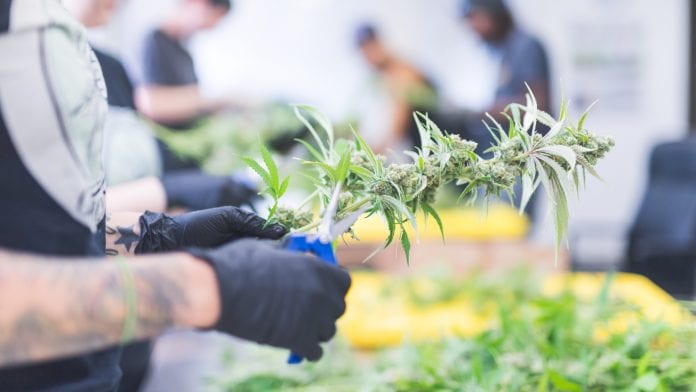
Researchers at the University of Colorado Denver, USA, found that cannabis dispensaries associated with rise, then decline in some neighbourhood crime.
Appearing in Justice Quarterly, a publication of the Academy of Criminal Justice Sciences, a new study found an association between cannabis dispensaries and increases in rates of crime and disorder in neighbourhoods within the region of Denver, Colorado, shortly after Colorado commenced legal retail sales of cannabis.
Are cannabis dispensaries increasing rates of crime?
Within the United States of America, ten states and the District of Columbia, now allow the sale, possession, and use of cannabis for recreational purposes, and 33 states and the District of Columbia allow medical cannabis. Many people argue that cannabis dispensaries attracts crime.
Lorine A. Hughes, associate professor in the School of Public Affairs at the University of Colorado Denver, who led the study, explains: “We found that neighbourhoods with one or more medical or recreational dispensary saw increased crime rates that were between 26 and 1,452% higher than in neighbourhoods without any commercial marijuana activity.”
“But we also found that the strongest associations between dispensaries and crime weakened significantly over time.”
Details of the study
In their study, the researchers looked at both medical and recreational dispensaries from 2012 to 2015 (Colorado legalised cannabis in 2014). They examined the extent to which dispensaries were associated with neighbourhood crime and disorder independently of other characteristics of the neighbourhoods (e.g. socioeconomic disadvantage, concentration of high-risk commercial establishments such as check-cashing stores and tattoo shops).
Measures of crime and disorder were drawn from the Denver Police Department and included aggravated assault, auto theft, burglary, drug and alcohol offences, murder, public disorder, robbery, and theft from a car.
Measures of other neighbourhood characteristics were based on 2013 approximations of characteristics of Census block groups, which researchers applied to 3,981 equally distributed geographic areas in Denver. Information regarding cannabis dispensaries was obtained from government agencies.
Finding the correlation
The study discovered that besides for murder, the presence of at least one medical cannabis dispensary was associated with a statistically significant increase in neighbourhood crime and disorder, including robbery and aggravated assault.
The study also found a relatively strong association between medical cannabis dispensaries and drug and alcohol offences, with a decline in the strength of the link after recreational cannabis was legalised.
The pattern of results was similar for recreational cannabis dispensaries, though the study found no direct relation to auto theft.
Important to note: study not to be generalised
The authors caution that the results of the study, are based only on information from Denver immediately after legalisation and before market saturation, therefore the study may not be generalised to other geographic areas.
They also note that because the study relied on official police data to measure crime and disorder, it’s possible that police targeted neighbourhoods with cannabis dispensaries, which would over-estimate the association between these facilities and crime and disorder.
Moreover, the authors suggest that, rather than fighting to oppose legalised cannabis, which has become a multi billion-dollar industry and is expected to create more than a quarter of a million jobs by 2020, it may be more practical to develop and support secure and legal ways for dispensaries to engage in financial transactions.


















